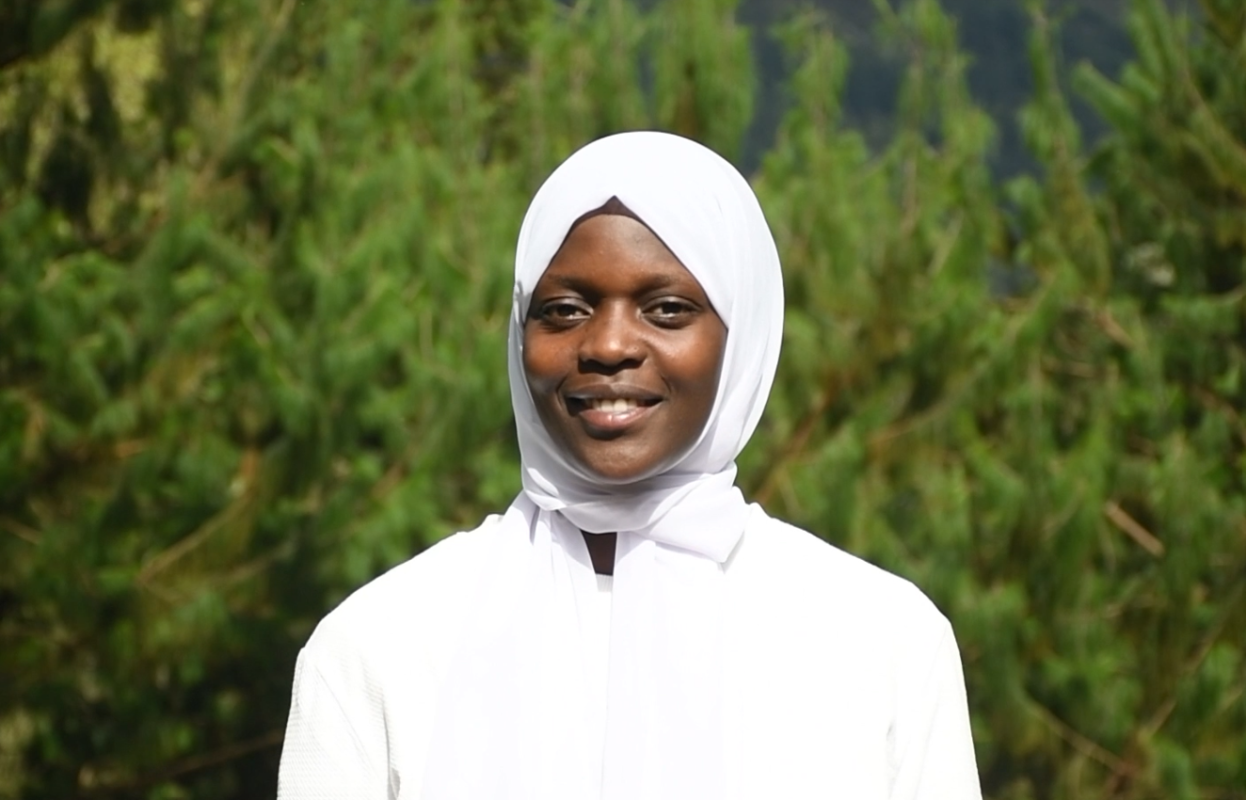In May 2023, young Tanzanian campaigner Zamana won the prestigious Amal Clooney Women’s Empowerment Award for her grassroots initiative to keep girls in school.
A vocal champion of girls’ education, Zamana was just 16 when she launched her campaign to support and encourage girls to stay in school. Her trailblazing efforts to drive change saw her receive the prestigious international award from Amal Clooney at a star-studded ceremony in London.
‘It is important for girls to stay in school because girls have dreams,’ Zamana says, passionately. ‘I feel happy to win this award. I hope people will support me and I will be a source of change in my community.’
Girls out of school
Almost 130 million girls worldwide are not in school. Although global school enrolment rates are now similar among boys and girls, girls’ school completion rates still lag well behind, with millions leaving school early – at great cost to their future prospects.
In Zamana’s home country of Tanzania, almost a third of girls are married by the time they turn 18. In her community, as elsewhere, many girls drop out of school because of early marriage or early pregnancy.
‘In my community, there’s a huge difference between girls and boys having access to education,’ Zamana, explains. ‘When girls finish standard seven… they run a high risk of being married, but boys have the privilege of accessing education.’
Zamana, herself still a school student, is determined to change this. Building on the public speaking and communication skills that she developed through our Enterprise Challenge programme, Zamana has set up a local campaign, Niache Nisome, which translates as Allow Me To Study. ‘Its main aim is to educate the community on why girls should stay in school,’ she explains.
Presenting and persuading
Enterprise Challenge, developed by Prince’s Trust International, is delivered in East Africa by the Asante Africa Foundation. Run through school-based clubs, it gives participants the chance to hone their entrepreneurship, communication and problem-solving skills – including by developing and pitching their own business ideas.
Many girls around the world find it difficult to speak in public and put their ideas forward – especially those who have grown up in cultures where they are traditionally expected to be quiet and submissive. But if girls do not find their voice, they cannot fully participate at school and in later life, even though they have much to contribute.
‘Girls or women are often considered as though their opinions do not matter,’ explains Florence Thomas, from our partner Asante Africa. ‘It is very important for us to empower and support girls to be able to speak in public because their voices matter, because they can bring about changes…It is important for girls to raise their voices on issues that affect them.’
Enterprise Challenge helps students to develop their skills and find their voice, with repeated practice in presenting ideas and persuasively discussing them. For example, Zamana and her team presented the idea of making and selling eco-friendly fuel briquettes as an alternative to firewood.
Further building on these skills, Asante Africa embraces a ‘Learn, Do, Teach’ philosophy, encouraging students to reach out and share their learning from the programme with other people. Together, these experiences helped equip Zamana with the skills and confidence to launch her campaign.
‘I did things on the programme that helped me stand up in public and communicate effectively, like doing groupwork and standing in front of the class to do presentations,’ Zamana recalls. ‘My ability to be confident and communicate has enabled me to deliver messages to the community, and be heard.’
Students first, mothers later
Zamana’s campaign focuses on influencing two main groups – schoolgirls themselves, and their parents. She initiates and leads conversations that stress that school-aged girls should not yet become wives or mothers, and should instead focus on completing their education – so that they have the chance to build a better future.
‘I educate girls and speak with them on how to fight for their dreams despite the challenges they face,’ she says. ‘But also I speak with parents on why they should allow girls to stay in school and reach their dreams.’
As well as emphasizing girls’ right to an education, Zamana also highlights how educating girls benefits their entire community. So far, Zamana has engaged over 100 people with her campaign. In both her words and her actions, she is a role model and an inspiration. The fact that Zamana feels confident enough to make her case to older adults, as well as to her schoolmates, demonstrates her exceptional potential to drive change.
In future Zamana, now 17, hopes to start her own NGO to support girls and women. ‘I believe every girl has a dream, no matter where she comes from,’ Zamana stresses. ‘I believe I can help girls in my community to follow their dreams.’

